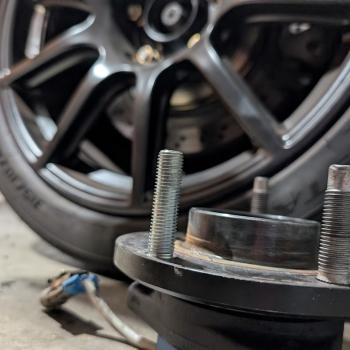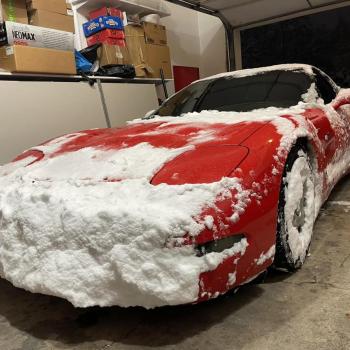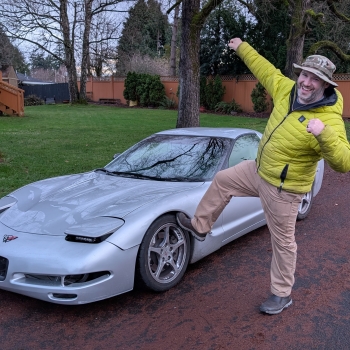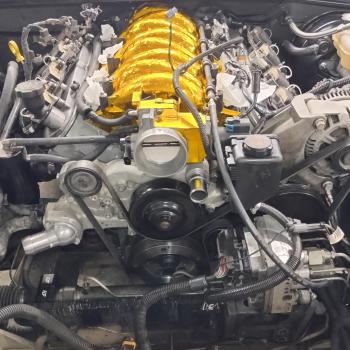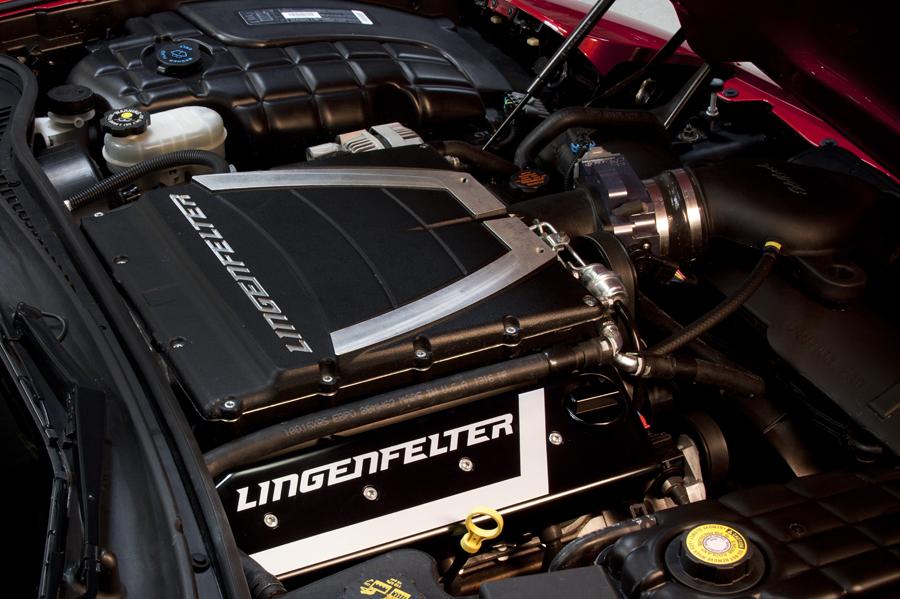
To Boost or Not to Boost, that is the question.
You've got a C5 Corvette, and you want more power. There's a lot of ways and options out there, from mild to wild... and hey there's a lot of folks talking about supercharging their corvette, that sounds rad. Is supercharging for you?!?
First let's start with the basics... having tangible describable goals with solid reasoning behind them helps. Most folks come at it from all sorts of incorrect perspectives like "I want 500hp!" without any particular reason behind that number. Let's dive into the questions you should be asking yourself before going supercharged.
- What is your use case that has you wanting more power?
- Undeniably great uses cases for supercharging
- What is your desire for reliability compared to your use case?
- What is your budget?
What is your Use Case that has you wanting more power?
So let's start by trying to figure out just why you want more power. Don't get us wrong, we're in favor of more power... but knowing your goals will help. Are you trying to do 1/4 mile or roll racing or any other such stuff? Are you tracking or autocrossing or drifting? Or are you just going out for cruises and want a bit of extra beans out of the car.
A supercharger is great for shorter duration bursts of lots of power. Now the devil is in the details on this, as a lot of folks will go on about how they aren't short duration... and then describe doing back to back 1/4 mile runs that only took about 24 or so seconds of total engine load. When we talk short duration, we're talking 2 or less minutes of load in a 5 minute time span. IE: You're using the car at full load 40% of the time or less. That doesn't sound like much, but in practice few drivers use their cars even at 10% of the time. That's a hard pill to swallow, but tag along.
So knowing that the goal is to have 40% or less full load usage of the car at any given time, who is a supercharger good for?
Most drag strip folks will be perfect candidates for a supercharger, and by proxy, so will roll racers, onramp chasers, and "I want to beat that mustang" guys. Lots of extra power for a short duration makes supercharging a pretty solid candidate without crazy high costs. It is worth noting though that going supercharged may move you into different far more competitive classes, where costs will grow quite quickly as you tax the reliability of the LS platform. Still, if you fall into this category, keep reading!
For folks tracking, auto-crossing and drifting their car, going supercharged is a bad idea in general. Superchargers are great for getting extra power out of your platform, it does so at significant additional thermal costs. To make a supercharged C5 put down power reliably over 40% load without puking it's guts out you're going to have to throw a metric ton of cooling at the car to combat the additional temperatures. Can it be done, sure! Can you get all the results you need naturally aspirated on the C5 Corvette though with heads and cams, all while being able to go for longer durations with improved reliability... more than likely yes. If you still want that huge kick in the pants of going boosted though... read on and see if the further considerations are something you find palatable.
For the average Sunday driver who just wants a little extra hot sauce... it's a no brainer. Quality drivability, plenty of power... supercharging is worth considering. It's worth noting that most street going "canyon carvers" fall in this category. The vast majority of mortals cannot drive a C5 Corvette to it's full potential on the street without killing themselves, and since you're probably not reading this from the afterlife and you aren't Ken Block... you don't need to worry about it.
Undeniably great uses cases for supercharging
So that all may sounds like we're trying to talk you ot of a supercharger... and while for osme of you folks we genuinely area, there's a few undeniably great use cases for supercharging.
Right off the bat, for your average around town driver going supercharged for more power is a fine way to go about it. You will get that power boost without having to pop open your wildly reliable factory built LS. For these sorts of folks, your additional wear will be so minimal even with a supercharger the car will likely outlast you.
One of the strongest arguments in favor of a supercharger though is that some folks have emissions considerations. While in theory everyone has emissions considerations in the United States and likely beyond, folks who are not using their vehicles on the streets don't have considerations, and we'll leave it to you to navigate all of that yourself. A lot of supercharger kits are CARB certified and 50 state legal however, So if you're in California and want more gusto... this may be one of the options in the cards for you.
What is your desire for reliability compared to your use case?
The are folks out there who genuinely don't care about blowing their stuff up and replacing it. Hats off to you masochistic sons of guns, the rest of us mortals prefer to not blow up expensive and time consuming to replace parts! If you're one of those normal mortals with reliability considerations, let's delve into it.
For folks just doing Sunday cruising or canyon carving or "aggressive street driving" there's almost no considerations here for you. A supercharger and your use case should not affect your usability. While some things may wear out sooner than later, the difference isn't so much so that it's worth avoiding.
Hitting the drag strip with any regularity for repeated high power launches with sustained loads up to high speeds? No surprises here but you're going to wear the drivetrain substantially more. That means upgrades or frequent replacements. An upgraded manual transmission will run you at least four thousand, get an upgraded rear diff for a few thousand more, overhaul your torque tube and spend the time and money to run solid bushings or replace guibos a lot... purchasing the supercharger is now actually the cheapest part of the equation.
Still interested in this setup for track days (time attack perhaps) or drifting? Well ontop of everything you listed above you're going to see increased speeds. With increased speeds you're going to see increased consumables. Brake pads, rotors, tires... you name it you're going to shred through that all a lot sooner, and that isn't even counting all the additional cooling you've thrown at the car in the hopes of not punching a hole in the side of it. If you haven't figured it out yet, this is a terrible idea for most folks.
What is your realistic budget
Still here? That means you're either one of our street going users or you've got deep pockets with a penchant for punishment! Either way, it's time to get realistic about costs.
The supercharger is going to run you about $5-6k. We don't have any particular brands we recommend at this time nor do we want to take sides early, so do your own research on here. We will say that C5 platform is fairly hammered on at this point so you should be able to trust any brand that's been around for a while.
Next up, you'll likely want to tackle any neglected parts of your Corvette. These are all over 20 years old now, clutches, torque tube guibos, any fluids... you're going to want to go through everything at a minimum, if not upgrade it in advance to get ahead of the issues. Plan on spending at least $1-2k for this part of the process, unless of course you've already done this.
Next up, if the engine itself is still running a base model LS1 cam, heads and intake, you're likely leaving a lot of power on the table. To make the most of your time you'll likely want to do a cam upgrade ($3k or so) along with at least used and machined 243 heads ($750 if you're thrifty) if not aftermarket higher flowing heads ($1.5k+) and ideally a fast 102 intake manifold ($2k or so installed with throttle body.
At this point, if your use case calls for drivetrain upgrades, plan on $5-14k here as well depending on level of trans, torque tube, differential etc etc that you get and if you do the work yourself.. Getting up there!
Throw in a before dyno session followed by an after dyno tune you've got 1k more. Add in some follow up if anything isn't perfect and pretty reasonable to hit $2k of costs here.
Are you one of the crazy folk who wants to do time attack or drift with this? Well better chuck on some above average oil coolers, a forward leaning radiator... there's another $3k if you do it yourself or $8k if you go with the Gspeed setup... and heck that may not even be enough, as the few folks who've pulled it off tend to not share all that they've done to make it work since they don't want their competitors stealing their ideas!
That brings us nearly to the end... but that doesn't consider the "opportunity" cost of doing this all yourself versus the actual labor cost of paying somebody to do it. That can value anywhere from $4-8k depending on just how much you're getting done and what the value of your presonal time is. We're not all rocket surgeons after all.
How those numbers stack up:
- $8k or so minimum expected costs (Including likely neglected wear items)
- $12-14k (total) with Supporting engine mods if you want to take full use of that boost.
- $17-21k (total) or so if you're upgrading the drivetrain to handle a heavier use case.
- $18-19k dyno tuned.
- $20-$27k with supporting cooling modifications for extended use situations.
- $24-35k with labor or time you could have spent doing something else
So knowing all of that, this brings us to the conclusions, which is a question you'll really have to ask yourself... being realistic about my use case and my budget... does a supercharger make sense for me? We'll let you be the judge of that.

